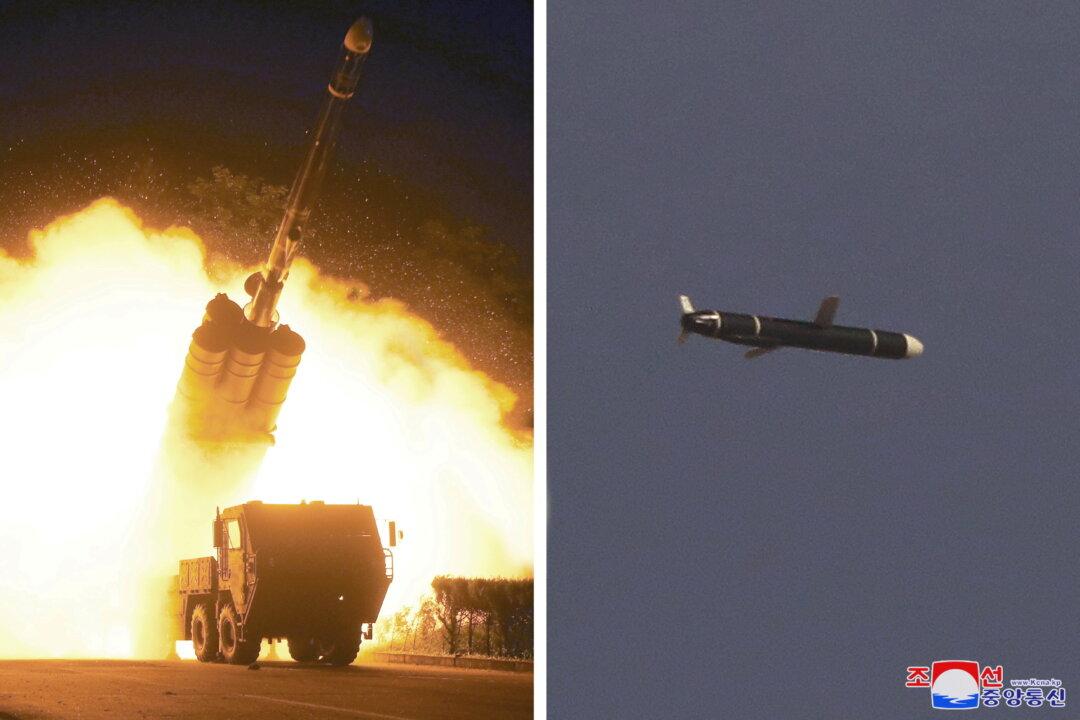Senior envoys from Japan, the United States, and South Korea met in Tokyo on Tuesday to discuss North Korea’s missile and nuclear development a day after Pyongyang tested a new long-range cruise missile.
Analysts expressed concerns about the latest tests of a missile dubbed “a strategic weapon of great significance,” according to the country’s state-run Korean Central News Agency (KCNA).





